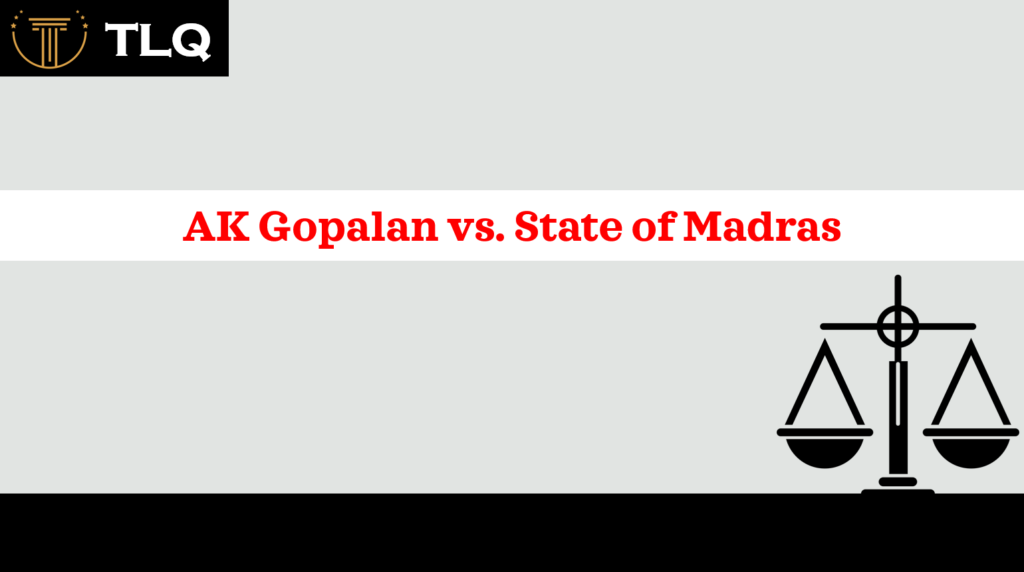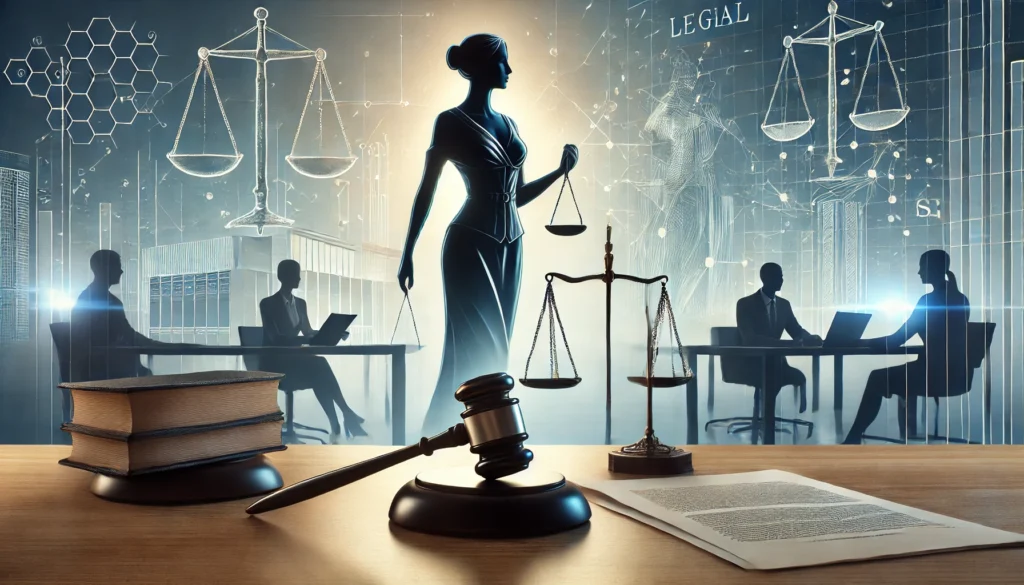Published On: 20th May, 2025
Authored By: Bandhani Ghosh
Shyambazar Law College, University of Calcutta
Abstract
The judicial system of India is well known for its framework. This framework is strongly supported by the constitution of different criminal courts which play the most important role in maintaining law and order in the society and providing justice to the one who is in need. Although there are other functionaries as well like , police , prosecutors , defence counsel, jail administrators etc , out this functionaries, the role of Magistrates is pivotal. Hence , it is very crucial to have a good understanding of the different types of Criminal Courts and what power they exercise, in order to have a comprehensive knowledge of the framework of the criminal justice system in India.
This article deals with the constitution, power and hierarchy of Criminal Courts in India. The
Code of Criminal Procedure (CrPC), 1973 ( now, the Bharatiya Nagarik Suraksha Sanhita, 2023) provides with this classification and power of the criminal courts of the country. A comprehensive overview of such constitution and power has been provided in this article.
Keywords : Judicial system, Criminal Courts , hierarchy, Bhartiya Nagarik Suraksha Sanhita, Power.
Introduction
The Judiciary in India derives its power from the Constitution of India. It is the guardian of the Constitution and a custodian of the fundamental rights of the citizens. The function of the court is interpretation of the laws made by the legislature and to protect the rights of the individuals. There is a well established hierarchy of the Courts in India in order to cater the needs of every person knocking its door for justice. The Judiciary stands in the form of a pyramid, with the Supreme Court residing at the very top of such a pyramid. The High Courts of states follow the Supreme Court of India, and stand below the Supreme Court in the pyramid. Followed by the High Courts, there lies the Sessions Court and the trial Courts at the lowest level to begin the litigation.
Hierarchy of Courts
The hierarchy of the Courts in India are as follows:-
- The Supreme Court of India The High Courts of states
- Lower Courts, which can be classified as :
1. Courts of Session 2. Judicial Magistrates of the First Class 3. Judicial Magistrates of the Second Class 4. Executive Magistrates
This hierarchy can be broadly classified as : the lower level criminal courts, the middle level criminal courts and the higher level criminal courts.
Lower level Criminal Courts
Courts of Judicial Magistrates
Under Section 9 of BNSS[1]Courts of Judicial Magistrates are established in every district. These courts are classified as :
- Judicial Magistrates of the First Class ● Judicial Magistrates of the Second Class
Powers of Judicial Magistrates
- Judicial Magistrates of the First Class: Handle criminal cases involving severe punishments but lower than those handled by Sessions Courts. They can impose fines up to ₹10,000 and imprisonment for a term not exceeding three years.
- Judicial Magistrates of the Second Class: Handle less severe cases, with the power to impose imprisonment up to one year or fines not exceeding ₹5,000.[2]
Chief Judicial Magistrate
Section 10 of BNSS provides that a Chief Judicial Magistrate (CJM) is appointed by the High Court in every district.
Additional Chief Judicial Magistrate may also be appointed to assist the Chief Judicial Magistrate.
Powers of the CJM
- Supervises and controls the work of Judicial Magistrates in the district.
- Can try cases involving imprisonment of up to seven years.
- May be designated to oversee sub-divisions within the district.[3]
Special Judicial Magistrates[4]
The High Court confers power of Judicial Magistrates on certain individuals provided they meet the requirements; such individuals are known as Special Judicial Magistrates.
Powers of Special Judicial Magistrates
- They have power to handle specific cases of certain class as been specified by the High Court
- The jurisdiction is limited.
As per section 113 of BNSS, all Judicial Magistrates are subordinate to the CJM who is again subordinate to the Sessions Judge.
Executive Magistrate
The Executive Magistrates are appointed by the State government to handle administrative works connected with the law. [5]
They are again classified into :
District Magistrate
The District Magistrate(DM) serves as the administrative head of the district.
Additional District Magistrates
They also have equal powers as that of the DM.
Sub- divisional Magistrate
When an executive magistrate is given power to take charge of a sub- division, they are known as the Sub- divisional Magistrate (SDM).
Special Executive Magistrates[6]
A Special Executive Magistrate can also be appointed by the state government to exercise specific functions.
Middle level Criminal Courts
Courts of Judicial Magistrates
Under section 8 of BNSS[7], the Court of Sessions has been established . It is the principal court of criminal jurisdiction in a Sessions division. A session judge is appointed by the High Court.
Powers of the Sessions Judge
A Session judge has power :
- To try cases of murder, rape or other severe offences
- To impose the death penalty
- To hear appeals against decisions made by lower Courts[8]
Additional Sessions Judges may also be appointed to assist the Sessions Judge. They have the same power as that of the Sessions Judge with certain limits fixed by the High Court.
Higher level Criminal Courts
High Court
As per article 214[9] of the Indian Constitution each state has a High Court . The High Court has a supervisory authority over the subordinate courts of a state.
Powers of High Court
- It exercises original jurisdiction in constitutional and civil matters Exercises appellate jurti er Sessions Court and District Courts.
- And , has supervisory authority over all subordinate courts in the state[10]
Supreme Court
The Supreme Court, also known as the apex Court of India, has been established under Article 124[11] of the Indian Constitution.
Powers of the Supreme Court
- Exercises original jurisdiction in disputes between states or between Centre and state or between a state and Centre at one side and a state at other side.
- Exercises Appellate jurisdiction in constitutional, civil and criminal matters.
- Exercises discretionary power to grant special leave to appeal against any judgement, order, decree, determination, sentence passed by any Court or tribunal in the territory of India, under article 136 of the Constitution of India .
- Also, exercises Advisory jurisdiction to give opinions on legal matters to the President of India.
Conclusion
Hence , it can be concluded that the judicial system in India has a strong framework. The criminal courts in India stand in the form of hierarchy and each court has its own functions. This system is essential for a smooth and proper discharge of justice and to ensure that every individual gets an opportunity to fight against the offence committed against them or society. The level of Courts ensure that all essential facts, questions of law, procedures are properly analysed and hence, come to a conclusion that determine the future of the society through the aggrieved party. Such hierarchy and constitution of the Criminal Courts in India make the Justice system of the country strong and effective.
Reference(s):
[1] Bharatiya Nagarik Suraksha Sanhita,2013, section 9, No. 46, Acts of Parliament,2023 (India).
[2] LawBhoomi, https://lawbhoomi.com/constitution-of-criminal-courts-and-their-powers/ ( last visited March 23,2025).
[3] ibid.
[4] Bharatiya Nagarik Suraksha Sanhita,2013, section 11, No. 46, Acts of Parliament,2023 (India).
[5] Bharatiya Nagarik Suraksha Sanhita,2013, section 14, No. 46, Acts of Parliament,2023 (India).
[6] Bharatiya Nagarik Suraksha Sanhita,2013, section 15, No. 46, Acts of Parliament,2023 (India).
[7] Bharatiya Nagarik Suraksha Sanhita,2013, section 8, No. 46, Acts of Parliament,2023 (India).
[8] LawBhoomi, https://lawbhoomi.com/constitution-of-criminal-courts-and-their-powers/( last visited March 23,2025).
[9] INDIA CONST. art 214.
[10] ibid.
[11] INDIA CONST. art 124.




